The Power of the Adolescent Girl: Vision for 2030
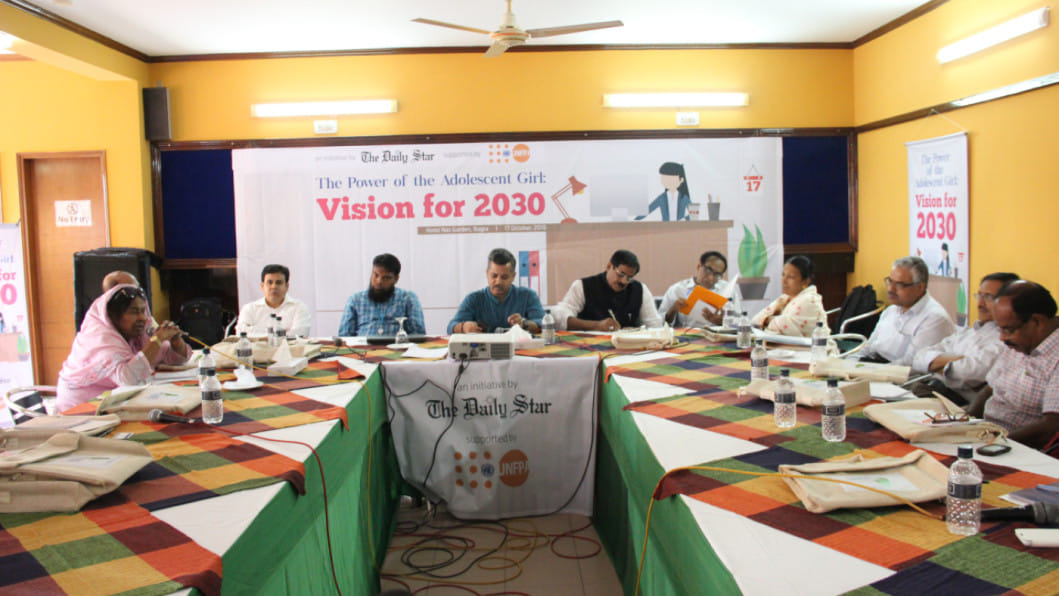
RECOMMENDATIONS :
* Girls should be given an opportunity to pursue higher studies in their preferred subject. Dramas based on social problems/issues should be staged in schools.
* Information, data, facts and figures concerning adolescent reproductive health should be included in school curriculum to make girls more aware of these important issues.
* Teachers in class should talk about the ill-effects of child marriage. Education officers at all levels can organize meetings with teachers, students, parents and imams on the ill-effects of child marriage
* Parents should be enable to be 'change agents'
* Media should be used to create greater awareness among all people. Positive reporting on reproductive health and rights should be done by newspapers and TV channels
* Reproductive healthcare during pregnancy for young brides should be made easily accessible and affordable.
* Laws regarding child marriage should be made stricter.
* Civil administration should be proactive in stopping child marriage and taking legal action against those involved.
* Girls need to be given skills development training enabling them to get loans from banks or financial institutions.
* Educational institutes should be more girl-friendly.
* Girl's education should be made free up to class 12. They should learn about reproductive health and nutrition. Girls should be also be enrolled in job-oriented education.
* There should be Adolescent Clubs in the urban and rural areas to create greater awareness among the young people
* Adolescent girls work in agriculture sector in rural areas but their work is not recognized therefore they are not empowered. Recognition will empower them.
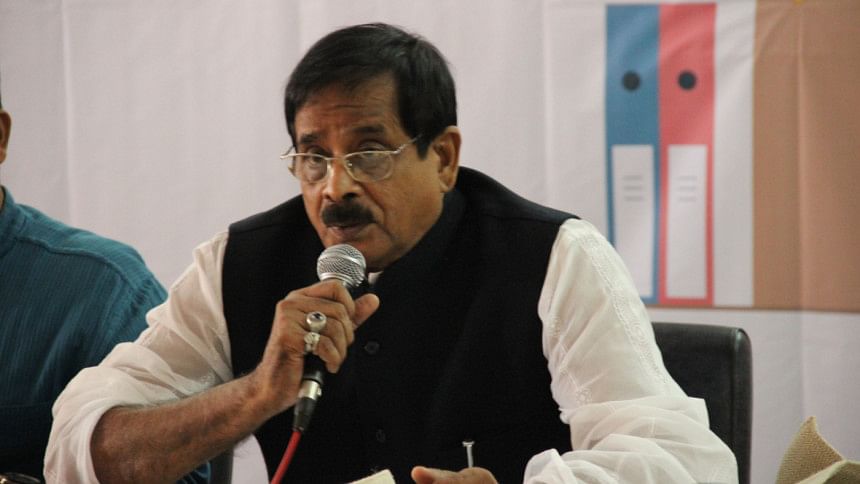
On the 17th of October, The Daily Star and the United Nations Population Fund (UNFPA) jointly organized a roundtable at at Hotel Naz Garden, Silimpur, in Bogra. The title of the roundtable was The Power of the Adolescent Girl: Vision for 2030". Dr. Muhammad Munir Hussain National Program Officer for Adolescent and Youth from UNFPA presented the keynote paper. Participants of the roundtable included district health officials, district government officials, health researchers, law enforcing agencies, NGO officials, and well known civil society members. The roundtable was moderated by Mr. Jamil Ahmed.
The main topics of discussion at the roundtable were in relation to the International Day of the Girl Child which was observed globally on the 11th of October and the rights of girls highlighted in the 2030 Agenda for Sustainable Development. The agenda calls for a stronger concentration on adolescent girls in all sectors by investing more in their education, sexual reproductive health and rights and social skills. Despite noticeable improvements, gender disparity remains high and further work needs to be done to ensure that all women are given the same opportunities to contribute to the overall development of their nation in all sectors.
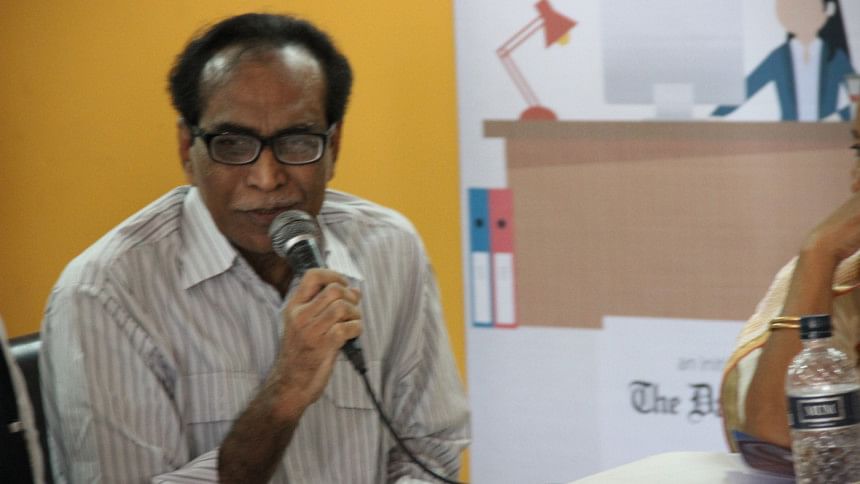
Dr. Muhammad Munir Hussain mentioned the current statistics and impediments in relation to social causes, gender based violence and sexual reproductive health and rights. It was said that only 21% of girls who were married before they turned 18 were able to complete their secondary education and pursue higher studies in comparison to 3% of the girls who were married off before the age of 15. This shows that although primary education enrolment is near universal, work still needs to be done to reduce the dropout rate of girls in secondary education. In the context of sexual reproductive health and rights, current statistics show that 63.7% of deliveries take place at home of which only 41.8% are done by medically trained personnel. This reaffirms the need for friendly health services for adolescents, married and unmarried.
Participants at the roundtable had a lot to add on how current obstacles can be addressed.
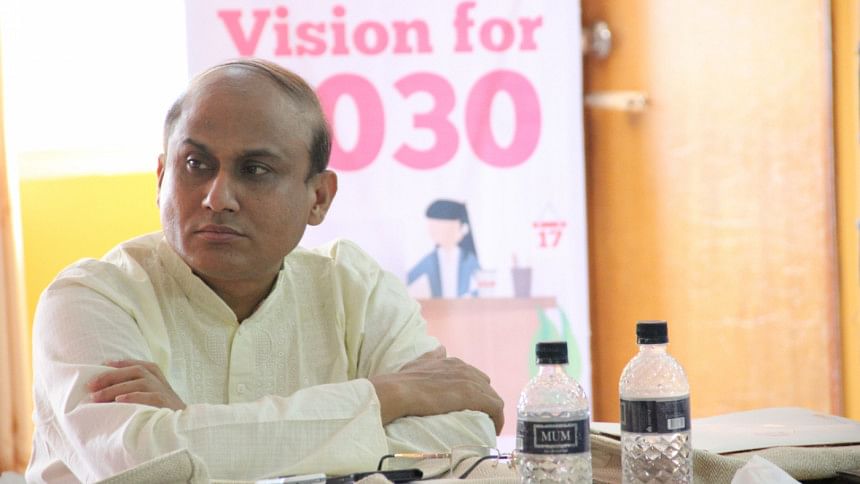
On the point of child marriage one speaker emphasized universal primary education and said that information of all children should be recorded by the City Corporation and Union Parishad. Regardless of passing or failing in exams every child must be provided with education up to eighth grade. Schools should keep this records and also provide aforementioned government departments with a copy. Other participants added that dramas (plays) on social issues should be performed in schools. Girls must be encouraged to take part in all school activities as well as pursue higher education. Information, data, facts and figures concerning adolescent reproductive health should be included in the school curriculum. Teachers also have a responsibility to talk about the detrimental effects of child marriage. Education officers at all levels can organize meetings with teachers, students, parents and imams on the ill-effects of child marriage.
Girl's education should be free up to class 12. They should be provided with thorough knowledge on reproductive health and nutrition. The change starts from home so parents should be made the 'change agents'. Girls should be enrolled in job-oriented education. Various programs should be undertaken to create awareness among the parents, public representatives and administration.
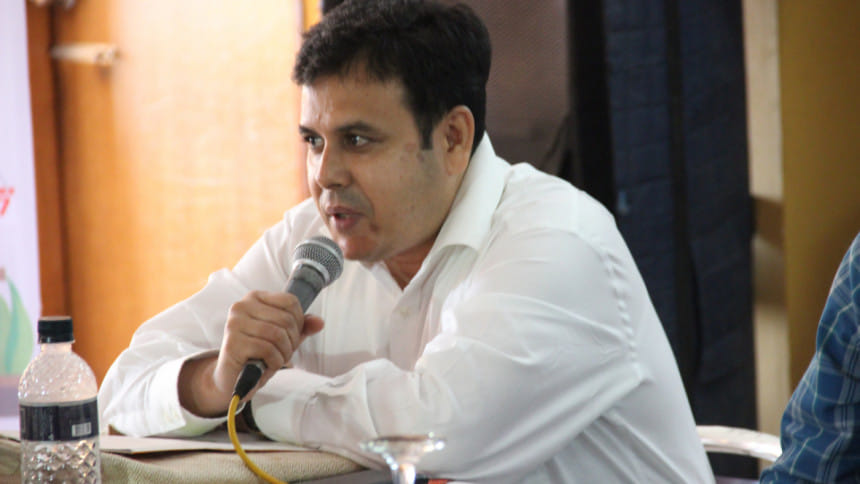
Many participants shed light on issues concerning not only sexual health and rights but overall general health and hygiene in different sectors. Such as garments workers, who are mostly young people and require proper health care services and safe shelter. The condition of toilets and bathrooms in schools in rural areas is very poor. These remain uncleaned and unhygienic. The number of toilets in relation to the number of students is insufficient. Better toilets or new ones should be built in new schools and colleges.
Ward Commissioners should talk about adolescent issues with the parents of young people. Girls should be given training so that they can find work.
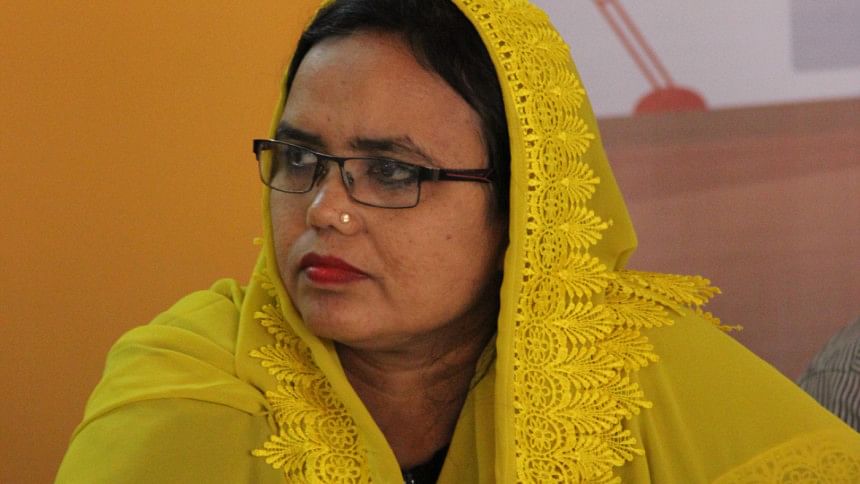
Sometimes young girls get pregnant before marriage. There is no initiative in government hospitals to counsel young girls about the hazards of getting pregnant outside marriage. They have no idea of what kind of method they should use to avoid getting pregnant. Many opt for unsafe abortions or commit suicide. The societal perspective about such girls also needs to be changed.
On the point of increasing awareness, many participants felt that the government and media can play a crucial role.
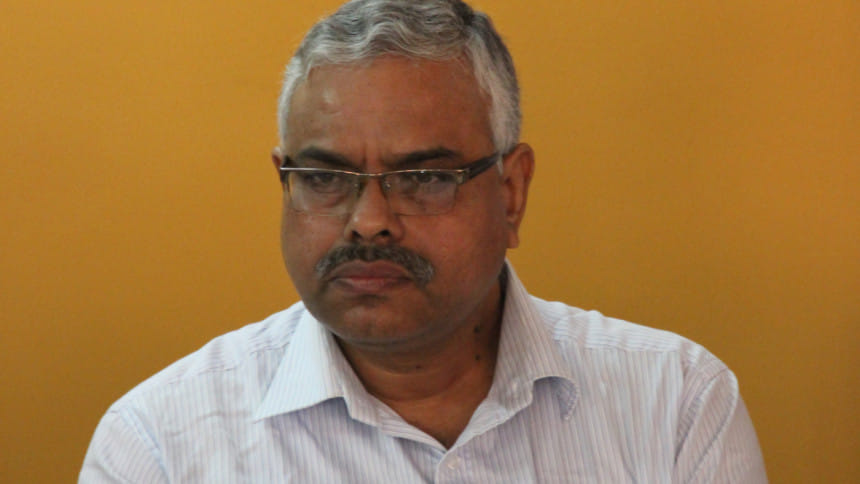
Sexual and reproductive health care during pregnancy for young women should be made easily accessible and affordable. Most of the participants strongly feel that laws regarding prevention of child marriage should be applied with greater force. In this regard, legal action should be taken against public representatives who issue false birth certificates. Civil administration should be proactive in stopping child marriage and taking legal action against those involved. One participant felt that girls should know about the bad effects of gender based discrimination and violence, and sexual and reproductive health. Many were of the opinion that education can help stop child marriage. Parents need to be sensitized about the well being of their daughters. More girl-friendly and women-friendly educational institutes should be built and at the same time adolescents who approach the administration to stop child marriage must be given the required assistance.
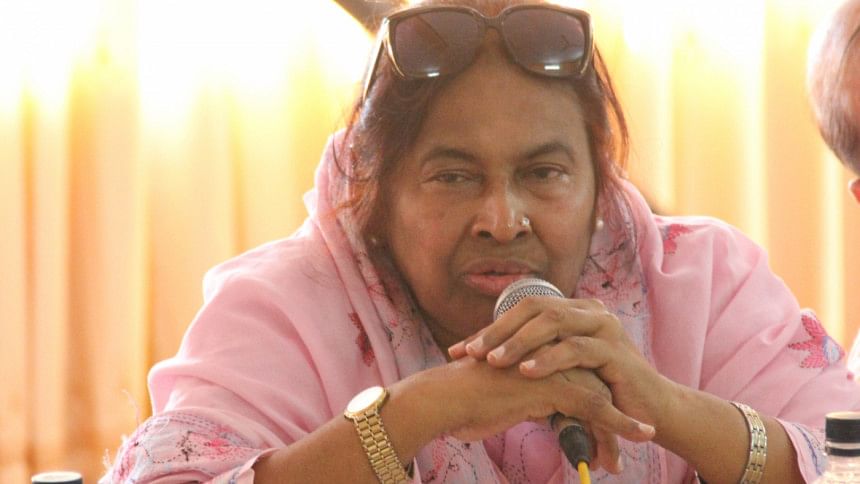
Another participant suggested Adolescent Clubs can be introduced in urban and rural areas to create greater awareness among young people through peer discussion. The contribution of women in the economy is not recognized and as a result they hardly receive skills training. The importance of such training was discussed at length. It was mentioned that though many adolescent girls work in the agriculture sector in rural areas their work is never recognized therefore they are not empowered. Recognition of their work will empower them. When adolescent girls receive some skill training they should be able to get loan from banks or financial institutions.
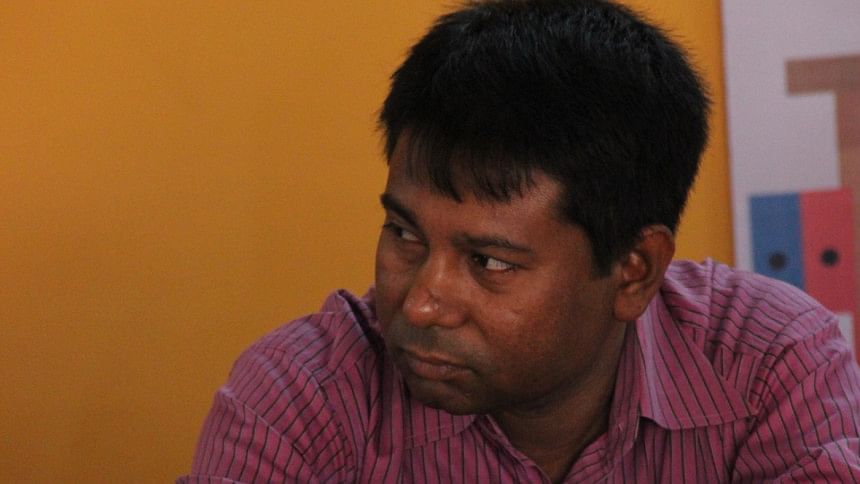
The role of media has been discussed by many participants. They feel positive reporting on sexual and reproductive health and rights should be done by newspapers and TV channels. Media should be used to create greater awareness among all people. Special supplements can be published on these issues by newspapers. Awards may be given for positive and effective reporting.
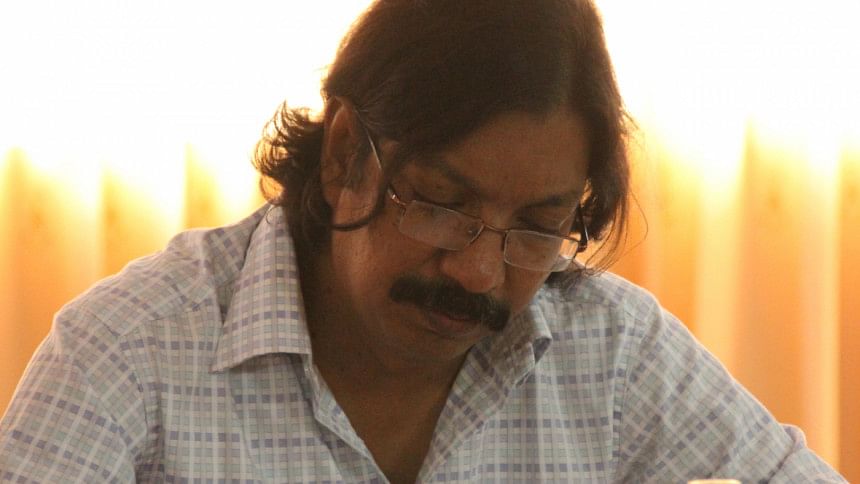
Relevant government departments should arrange for showing cinemas based on such social issues in rural areas. The government officials and all people need to know the importance of girls in society. Religious awareness should be increased and all awareness activities should start at union levels.

 For all latest news, follow The Daily Star's Google News channel.
For all latest news, follow The Daily Star's Google News channel. 



Comments